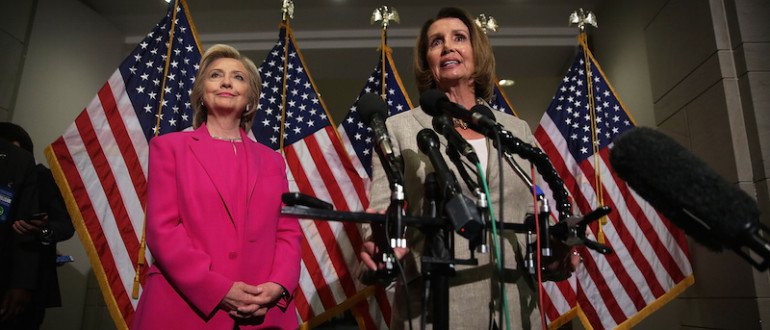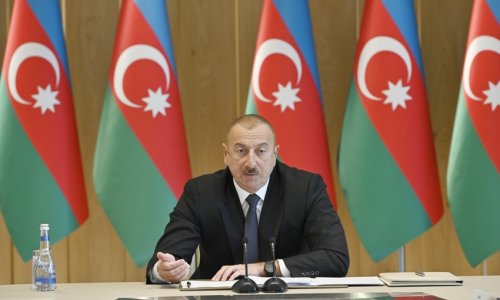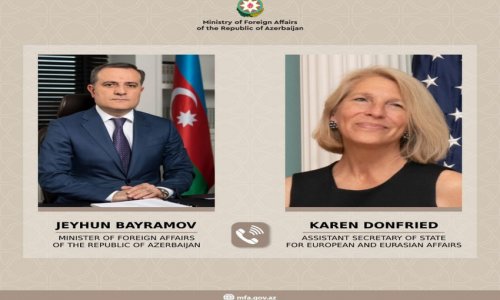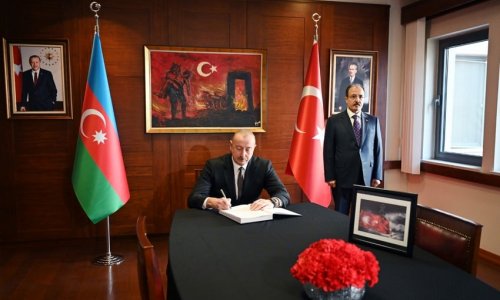By Maayan Jaffe
We need more women parliamentarians, as they focus on different issues and have styles of governing that help countries run better and smarter. Research shows, at the global level, women are less corrupt. There are few countries that have managed to consistently elect more than 33 percent of women to their national legislatures.
According to a 2015 report by the Inter-Parliamentary Union, many Muslim-majority countries — Iran (3%), Lebanon (3%), Qatar (0%) — are among countries failing to include women. Many Spanish-speaking countries fall at the top: Cuba (48.9%), Mexico (42.4%), Ecuador (41.6%). The United States rates at 19.4%.
Inclusion of women in parliament is a hallmark of budding democracies, such as Azerbaijan (15.6%). In fact, in Azerbaijan, after the November 2015 election, that number jumped to 17% and represents a growth of 12% since 2005. Azerbaijan struggles with government reform, and has come under criticism for this – justified and not. However, when it comes to women’s empowerment in politics, there is a lot that we can learn from Azerbaijan.
In November, voters elected 125 deputies out of 767 candidates to parliament in Azerbaijan. While there are no legal requirements to promote women candidates, most parties informed the Organization for Security and Cooperation in Europe/Office for the Democratic Institutions and Human Rights (OSCE/ODIHR) in a pre-election assessment that they have put into practice "voluntary policies.” These are among factors that led to an increase of women representatives.
The OSCE/ODIHR refused to monitor the Azerbaijani election, accusing Azerbaijani authorities of limiting free speech and of unfairly cracking down on the opposition. But the election observation mission of the Parliamentary Assembly of the Council of Europe (PACE), considered the Azerbaijani election to be "generally in line with international standards.”
Franz Obermayr, a member of the European Parliament, made special note of the work done to promote women in this election, congratulating Azerbaijan on the number of women who stood for election and made it into office.
The growing role of women in Azerbaijan’s socio-political life is one of the most remarkable achievements of this Muslim-majority country. This success is based on a rich tradition of women’s involvement in politics. Universal suffrage was introduced in Azerbaijan in 1918 by the Azerbaijan Democratic Republic, making it the first Muslim country to enfranchise women. Since then, several women have held senior government positions, including deputy speaker of the parliament and deputy chair of the Central Election Committee, as well as several deputy ministers of state.
The current government, despite its shortcomings, maintains a policy of prioritizing women’s rights and needs. This includes a government-supported women’s council, which promotes women with organizational and leadership skills and as a result women members in leadership in municipalities grew to 35.6%.
Of course, women (as throughout the Western world) are underrepresented in high-level jobs, including top business positions. They face more difficulty than their male counterparts in getting bank loans and, despite a new legislative report, an above-average amount of sexual harassment by male employees.
But Azerbaijan has much to be proud of – especially if we measure women’s political empowerment not only by looking at formal political structures, but by what women are doing in Azerbaijan both inside and outside of the system to reshape society…business, academia and the professions.
Women are represented in government and other decision-making bodies. The number of women in parliament and who are elected to municipalities is growing. If America is 239 years old and women occupy only 19.4% of elected seats – is there anything we can learn from this Muslim-majority country?
Maayan Jaffe has been a journalist for 20 years. She is a former Breaking News Editor for the Jerusalem Post and a former editor-in-chief of the Baltimore Jewish Times. She has written hundreds of articles relating to international relations and politics, which have been published by media outlets across the world.
Follow us !











